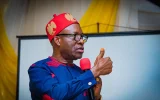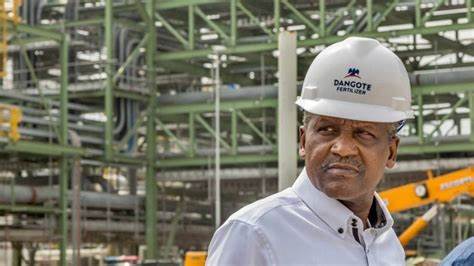by Abdulhameed Ujo
Given the above projection, PDP will win 3 zones and FCT. These are South-South, South-East, and North-Central and FCT with total registered voters of 28,670,629; while the APC will win 3 zones with 44,848,911 registered voters.
The registration of the All Progressive Congress (APC) by the Independent National Electoral Commission (INEC) is an important development in the electoral history of Nigeria. It is important because of the likely progressive change it will create in the nature of electoral competition as either of the two major political parties will work hard to ensure its victory at the polls. This is the second time Nigeria is practicing a two-party system. The first time was when the military regime of General Ibrahim Babangida introduced it in the abortive Third Republic. The Babangida two-party system was short-lived as it collapsed with the June 12, 1993 saga. This, notwithstanding, it left a positive legacy in the electoral process. For the first time in the history of Nigeria, election was conducted without ethnic and religious conflicts. Electoral competition between the Social Democratic Party and the National Republican Convention was free and fair and the former earned its success in the aborted presidential election due to hard work. The positive impact of the election is that it united Nigeria, strangely, under an authoritarian military regime.
It is necessary to commend INEC for the courage to take the decision despite the maneuvers to prevent the registration of the APC. INEC first developed this posture in its performance in the 2011 general election. The Professor Attahiru Jega – led INEC is good in crisis management. It has also, exhibited transparencies and honesty in its mandate and mission.
From the beginning of the Fourth Republic, Nigeria has had a multi-party system in theory and one-party the dominance at the national level and in some states. This has been responsible for the inter-party and intra-party conflicts. It is necessary to mention that a two-party system is ideal for the electoral system in Nigeria.
The electoral system can influence the party system. A multi-party system is successful in countries with a proportional system like most European countries. On the other hand, the ‘First Past the Post System’ is more successful in countries with a two-party system like USA, UK and Ghana. It is an appropriate system for Nigeria.
The emergence of a two party system will not wipe out other registered political parties. They will continue to exist and be a safe haven for independent candidates who may not like to contest election under the two major parties. It is unlikely that such parties can win national elections.
The advantages of a two-party system are many. First, it will make elections more competitive as either party will stand the chance of winning or losing an election. This will compel them to perform real functions like nominating candidates acceptable to electorates. This means that the days of anointed candidates are over. Secondly, either party will be forced to set up operational branches at ward, local, state and national levels. Thirdly, the parties will be compelled to develop vote-winning manifestoes. Fourthly, those elected are likely to deliver the goods as lack of performance can lead to impeachment or recall.
It is customary for political scientists to predict the outcome of a major political development, as ‘Prediction’ is an essential feature of the science of politics. The shortcoming is that Political Science is not a perfect science. Its prediction can only produce 50:50 outcomes. Political behaviour cannot be predicted accurately because it deals with human beings who cannot be predicted accurately. Nevertheless, some attempt will be made to predict the result of the 2015 Presidential election based on the registration of voters in the 2011 elections.
All things being equal, based on the 2011 voter registration exercise, and if electorates are to vote on party lines the result of the presidential result in 2015 will look like the following tentative projections in the six zones and FCT. (See table below)
Given the above projection, PDP will win 3 zones and FCT. These are South-South, South-East, and North-Central and FCT with total registered voters of 28,670,629; while the APC will win 3 zones with 44,848,911 registered voters.
This is a mere projection and could be drastically changed as a result of unknown variables such as the selection of candidates for the presidential election and other offices. Another unknown variable is the impact of the first election. The first election is very crucial as it could produce a bandwagon effect. The wind of change could make those sitting on the fence to migrate to the winning party so that they could enjoy the spoils of victory.
Another factor which is likely to affect the outcome of the election includes the transparency and efficiency of INEC, impartial role of security organizations, effective organizational ability of political parties and reasonable election manifestos. The foregoing projection is based on the likely general tendency. They will be nothing like zonal block voting. Some states in the PDP zones may vote for the APC and some states in the APC zone may vote for the PDP to equalize the curve. According to this projection, the gap between the APC and PDP is 16 million in favour of the former.
The PDP can create an upset by winning if appropriate steps are taken to eliminate its weaknesses. The weak areas of the party are the disagreements with Governor Ameachi, Governor Nyako and five other Governors in the North with their ten demands and Chief Olusegun Obasanjo. Some of the ministers and special advisers are liabilities rather than assets to the party. For example, the economic policy has been based on “economic man model” which can only produce growth not development. The issue of lack of economic development could adversely affect the electoral fortunes of a ruling political party. It is a deadly campaign weapon for the opposition party.
There is a need to inject thinkers who can bring alternative ideas which can produce economic development. Also, those handling the publicity aspect of the Presidency are not doing it properly. Their focus is on attacks, on opposition party which is not logical as two wrongs cannot make a right.
As a party in power, the government can mobilize experts to manage its propaganda programme with facts instead of using falsehood to convince the electorate. They should focus their attention on the positive achievements of the government with facts and figures. The body language of the government on issues involving corruption should be more aggressive.
Unless the APC messes up its strategy it is likely to coast home with victory. The role of campaign rhetorics is also important. Political parties should not engage in negative campaigns by trying to run down their opponents, rather they should focus at what the party will do for the nation after winning the election. Nigerian politicians should realize that election is not a ‘do or die’ affair. In every competition they will be a loser and a winner. The loser should accept defeat in dignity and quickly release a concession statement; while the winner should be magnanimous in victory and become a leader of Nigeria and not that of a political party. This will give the opposition the opportunity to review its performance in the election and develop programmes to improve its areas of strengths and eliminate areas of weaknesses. It should behave like a cobra; recoil to gather more venom to strike at an appropriate time.
The 2015 election can be described as ‘critical’ because it is coming up after a major change in the party system. It is an opportunity for Nigerians to cultivate the habit of national integration which has eluded us since the beginning of the Fourth Republic in 1999. The two-party system is a mechanical way of promoting national unity. Ethnicity and Religion, the two main challenges of Nigerian elections may not play an active role as was the case during the presidential election in 1993.
Another issue often neglected which is necessary for the survival of the party system is that of civic and political education. Civil and political education are things that could be used to create awareness among the electorate to participate in the electoral process and protect their votes. To this end, all stakeholders in the electoral process should establish a special unit to handle the issue. The training should be done on a continuous basis and not just during election. It should be an integral part of pre-election activities. Enough funds should be provided for the exercise. Also, experts with relevant skills should be employed to do the training. If properly done, ignorance about electoral issues will be a thing of the past in elections in Nigeria in 2015 and beyond.
/p














